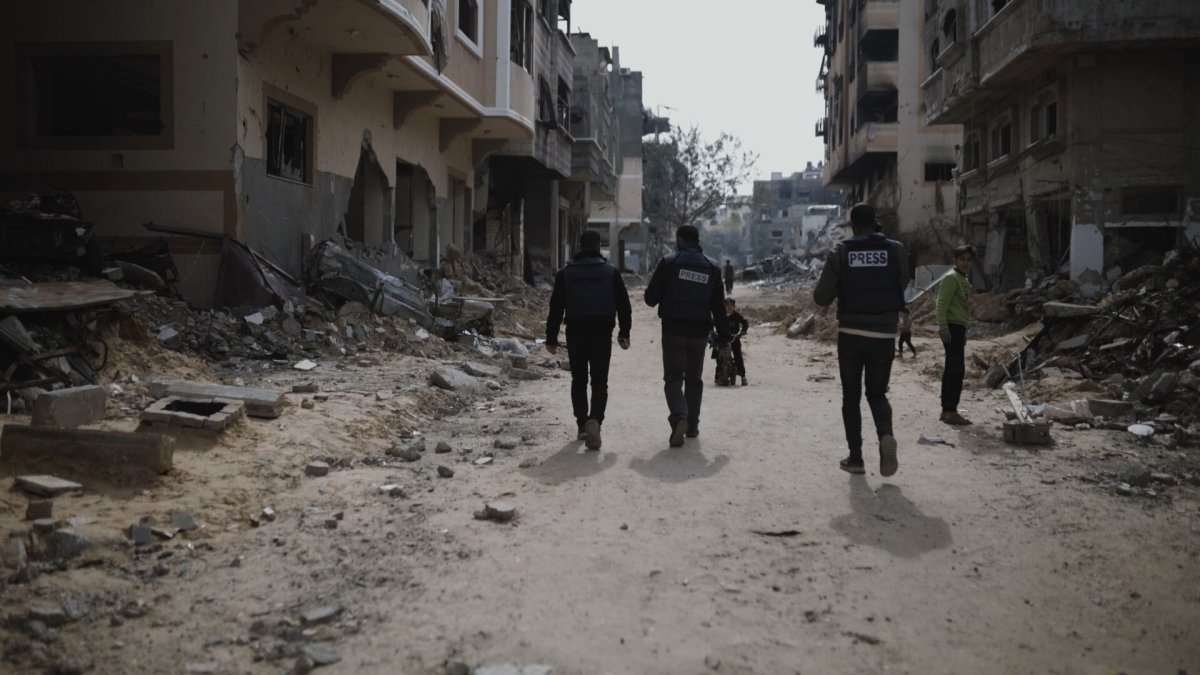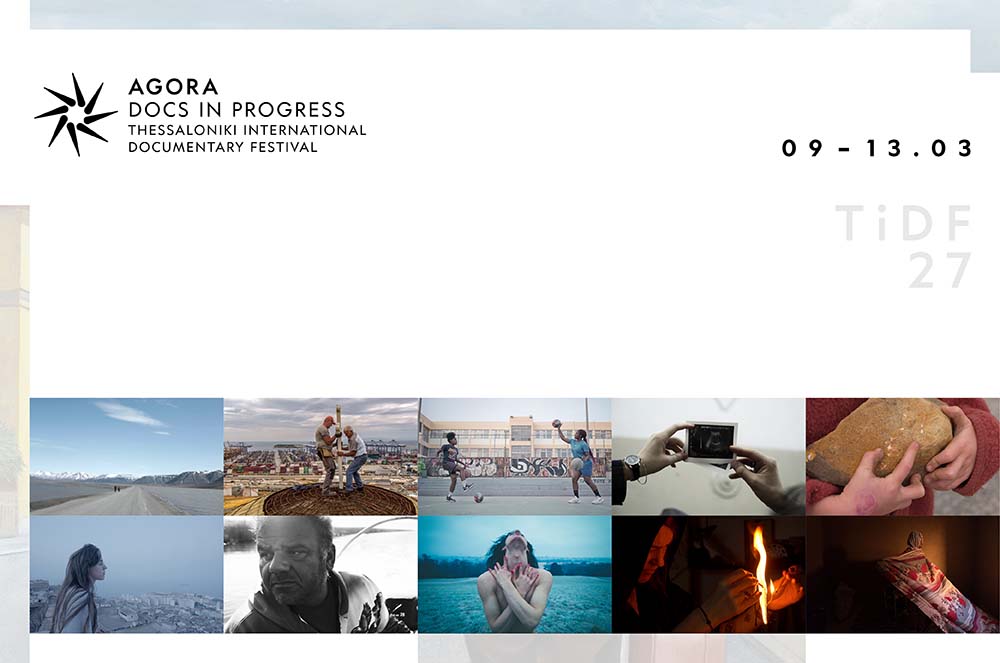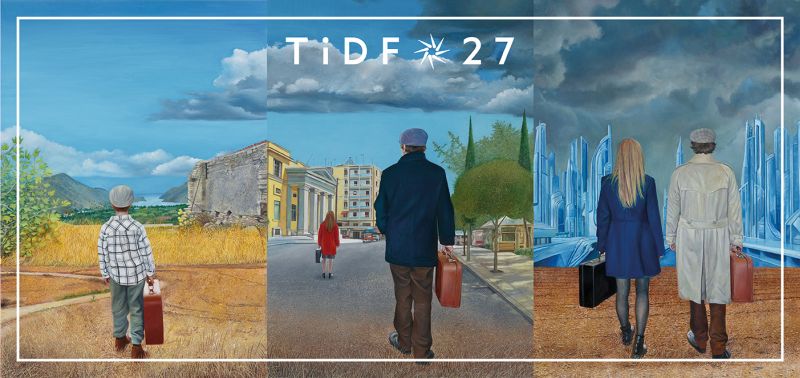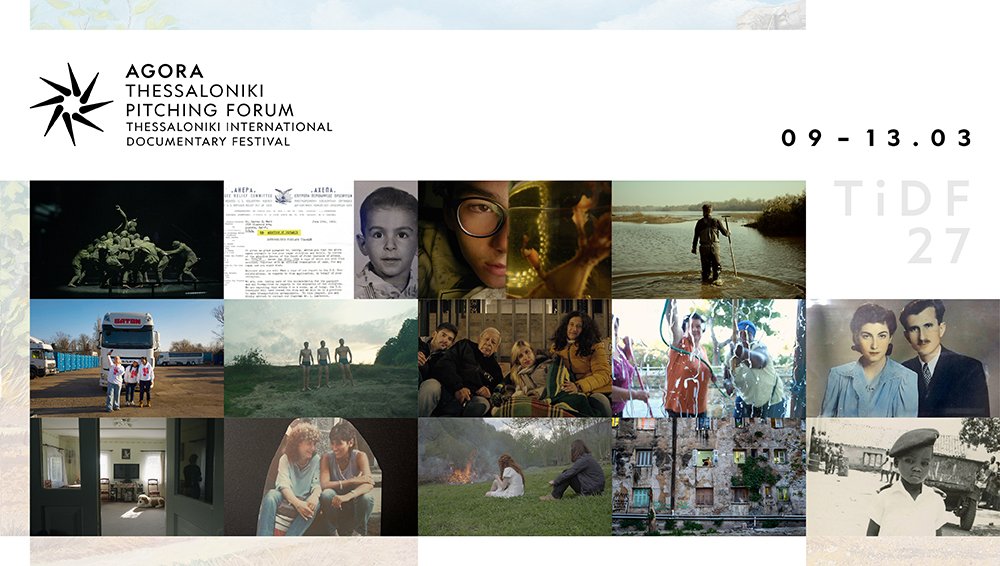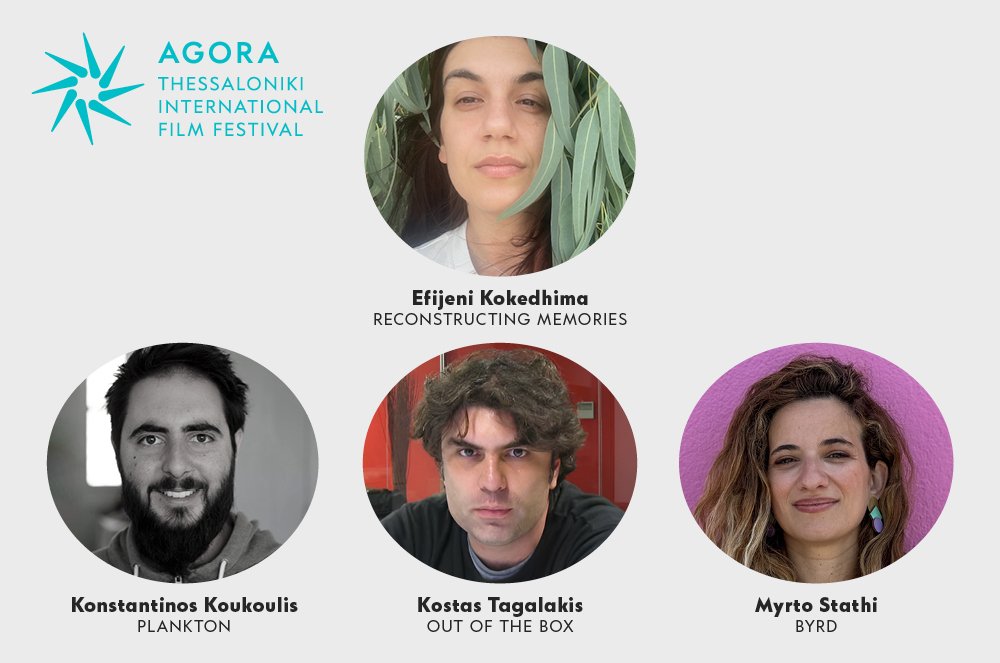Masterclass by Emin Alper – Yorgos Tsourgiannis
Emin Alper, one of the most significant Turkish filmmakers of our time, visited Northern Evia for the screening of his film Burning Days, which won the Fischer Audience Award for a film in the “Balkan Survey” section of the 63rd Thessaloniki International Film Festival.
Within the framework of his presence at the 3rd Evia Film Project, Emin Alper delivered a masterclass on Friday, July 5, in Agia Anna, together with the renowned Greek producer Yorgos Tsourgiannis, co-producer of his film Burning Days. They talked about what it means to make cinema in uncertain times and geographical contexts, and to develop alternative methodologies in order to overcome erratic limitations.
The masterclass was prefaced by the Festival’s artistic director, Orestis Andreadakis, who touched upon the first time that the Festival came to Northern Evia three years earlier and the process of seeking a venue for the seminars that the students of the National & Kapodistrian University of Athens would participate in. “When we chose Kanatakia, a lot of people wondered why we would do the seminars in a tavern. However, we thought of something the teachers and of course, the Festival’s President, Eleftheria Thanouli, Professor of Film Theory at the Film Department of the Aristotle University of Thessaloniki, know very well; that the educational process has nothing to do with walls, but everything to do with passion and love of learning," he stressed. He congratulated both students and professors for their exceptionally high level of knowledge and also welcomed 12 students from the ANT1 Media School, an initiative of Fanis Mouratidis.
Immediately afterwards, he welcomed the “brave neighbor and friend of the Festival” Emin Alper, the great producer, Yorgos Tsourgiannis, who has films such as Dogtooth in his portfolio, as well as the moderator of the discussion, partner of the Festival and author, Yiannis Palavos.
Yiannis Palavos thanked the audience for its attendance and briefly presented Emin Alper’s work, divulging that he has created four films that have travelled to the world’s biggest festivals, having earned a number of awards. Initially, he asked the speakers how they met, and Emin Alper recounted their introduction at a pitching platform in 2016, where he was presenting the Tale of Three Sisters. Yorgos Tsourgiannis recalled that between them there was instant chemistry and that at the time, Greece was not an obvious choice for a co-production country. "For me, Emin's films were a great discovery, a great thing, in which I wanted to participate," he stated.
“You encounter many producers, yet with only but a few you have such good chemistry,” Emin Alper said in agreement. He indicated he shared a similar perspective on things with Yorgos Tsourgiannis and they have an excellent relationship. This professional relationship has been maintained through the years, despite the strained relations between the two countries. Both agreed that this has never been a source of contention. In fact, Yorgos Tsourgiannis remarked that these two countries have a lot in common, that the people of these two countries share many similarities with one another.
In regards to the role of the producer, Yorgos Tsourgiannis said that the objective is "to help the project come to fruition and, particularly in arthouse cinema, protect the creator’s vision. The role of the producer has much to do with the creation of a common vocabulary, facilitating meaningful communication with creators."
Emin Alper stated that the only chance to really distance yourself from the script of your film, is to hear a substantial critique: "It's crucial for this critique to originate from people you trust. Too much talk too soon can confuse new filmmakers. Yorgos Tsourgiannis is one of the people I trust. I always read through his thorough commentary, and then I make adjustments." He then joked about AI's attempts to write a script in his own style: "Despite my best efforts, unfortunately, AI gave a happy ending to the story."
He stressed that the script writing process has much to do with patience. He noted that he writes his first draft very quickly, within a period of 2-3 weeks. Then, he starts making corrections. He takes a two-month long break to distance himself from his writing and comes back with a new perspective. “The script continues to change throughout the editing process, as well. I feel the only thing really stopping the changes in a film is an invitation from a festival," he explained, adding that usually after 4-5 months of changes, he feels he has exhausted all possible alternatives to a script, at last.
Next, he discussed the issues he had with the Ministry of Culture of Turkey during the filming process of Burning Days. He said he had to return the money allocated to him due to the ministry not being content with the changes made to the film after the initial draft: "I was blamed for the homoerotic content of my film because in Turkey, homophobia is now the official political practice," he explained, yet pointed out that the film’s reception by the audience was particularly touching.
As for the challenges encountered in Greece and the wider region, Yorgos Tsourgiannis observed that in general, things are going quite smoothly, but he feels that they can be derailed at any time: "I often wrestle with bizarre provisions of the law and I’m jealous of my Western counterparts. The West has always been a fantasy to which I succumbed. However, I had to work so hard to overcome various hurdles that now, I have become stubborn and I wonder; if we all leave, who will be left behind?" He added he is constantly looking for co-producers as the opportunities for funding in Greece are limited.
Emin Alper expressed that every country has its issues, but that the issues in Turkey are rather grave: "Sometimes, due to the various delays and obstacles, I end up feeling like an investor or a bureaucrat. I often stop feeling like an artist and that's exhausting. I have reached the threshold of a nervous breakdown numerous times," he said. He added: "I have thought about leaving Turkey. But there are two types of people: those who can and those who cannot live abroad. I belong to the latter category."
Yorgos Tsourgiannis advised the young emerging filmmakers to take their time in creating a film and not to be and not to be discouraged by the difficulties of this job. He stressed the need to seek refuge in their fellow students and future partners. Emin Alper also endorsed this human-centric approach, underlining that solidarity is extremely important in this line of work: “Find friends, not partners. Prepare yourself for the inevitable disappointment. Your films may disappear among thousands of others. Don't be discouraged. If you are particularly fragile and vulnerable, don't do this job. And the worst thing, which I have unfortunately observed in people who have tasted failure, is that they became full of malice. Please don't become spiteful. Don't let disappointment embitter you in an irreversible way." On what he looks for in a filmmaker, Yorgos Tsourgiannis said that he follows the human-centric approach he mentioned earlier: “While I do not underestimate the importance of an idea’s content, what is the most essential for me is the kind of person I have before me and how they communicate their idea to me", he stressed.
Emin Alper also offered a couple pieces of advice to the students: "Be realistic with your scripts, especially in the beginning. I always have 2-3 scripts as alternatives, even now. I often feel like a contractor with all the plans I devise, but unfortunately, it's part of the job," he said, humorously. "In recent years, our gamble as filmmakers and as members of society is to protect Justice. The first thing that all oppressive regimes attack is Justice. The law puts obstacles in their path. In my country we constantly bear witness to gross injustices. With my cinema, I want to be part of this modest struggle against the oppressors," he emphasized.
"I hid my dreams for many years," he declared shortly before the end, on the challenges faced by professional artists. "I was working a regular job, but I realized quickly that the only way to be truly happy was to shoot a film. Ever since I was a kid, I dreamed of creating stories and films," he admitted.
Concluding, he spoke about the value of pitching in his line of work, noting that even though he doesn't enjoy it himself, it is particularly useful: "When you hear your own story, when presenting it to others, you understand if you have created something truly boring, or, conversely, something truly fascinating."









